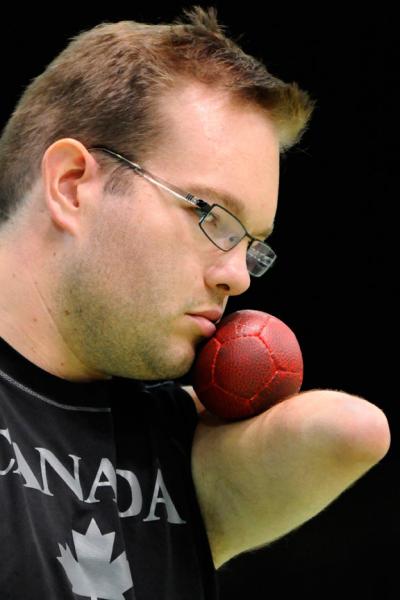

When you try to define the word “disability,” it’s often associated with an inability to perform certain everyday tasks that most people are able to do. But for 28-year-old Canadian Paralympian Josh Vander Vies, that assumption is far from the truth.
Born without arms and legs, Vander Vies is a two-time Paralympian and boccia player for the Canadian National Team, and models himself to be an inspirational figure for those with and without disabilities. At a young age, doctors doubted his ability to cope without the use of his limbs, but he has since proven the critics wrong. Vander Vies is a UBC graduate, has competed and traveled around the world, and lives a more-than-normal life with his partner and family. He discusses the importance of striving to live a normal life despite having a disability in his blog Disability is Not Negative, which was posted on hiswebsite.
“It’s up to adults with disabilities to build positive attitudes about themselves and other people with disabilities by doing ordinary things in creative and amazing ways,” writes Vander Vies in his post. And through his athleticism, and willingness to share his story to audiences around the world, he has proven to be that spokesperson and role model. “Giving up is the easy way out,” he writes. “Not giving up, risking your ego, and working hard at accomplishing a tough goal is being alive. Success will follow.”
It’s inevitable that there are many questions that follow a disability at birth or later in life. People often wonder how this affects everything from their personal life to their potential future careers. However, Vander Vies stresses that a disability isn’t what stops you. “Other things do a great job of this though: negative attitudes, giving up, not taking chances, or not working hard,” he says.”
Those born with disabilities oftentimes are more sheltered and protected by their parents, Vander Vies writes. “This can be especially damaging. Kids without disabilities are allowed to take chances and do risky things—don’t forget to give that opportunity to your child with a disability as well.”
He discusses the importance of parents fostering positive attitudes for their children with disabilities. “It is up to parents to support their child when the going gets tough and they want to throw in the towel,” he writes. Often enough, failure hurts, but any failure can be turned into a learning experience.
Without the support from his family, courage, and determination to be bigger than his disability, Vander Vies would not be where he is today: training and competing internationally, and speaking to audiences of thousands.
“Kids with disabilities need to learn the value of hard work because they will be working hard for the rest of their lives ... There are many negative things in the world. Disability is not one of them.”
Photos: JD Booth, Kathleen Melis/Thinkstock
